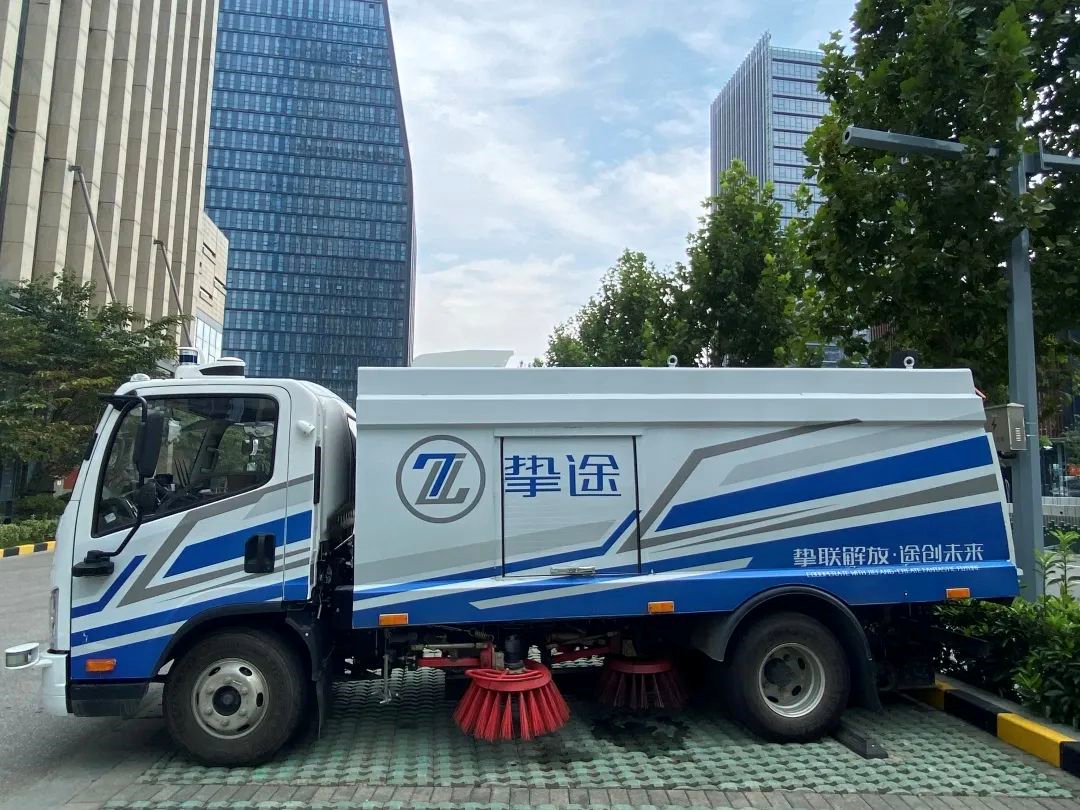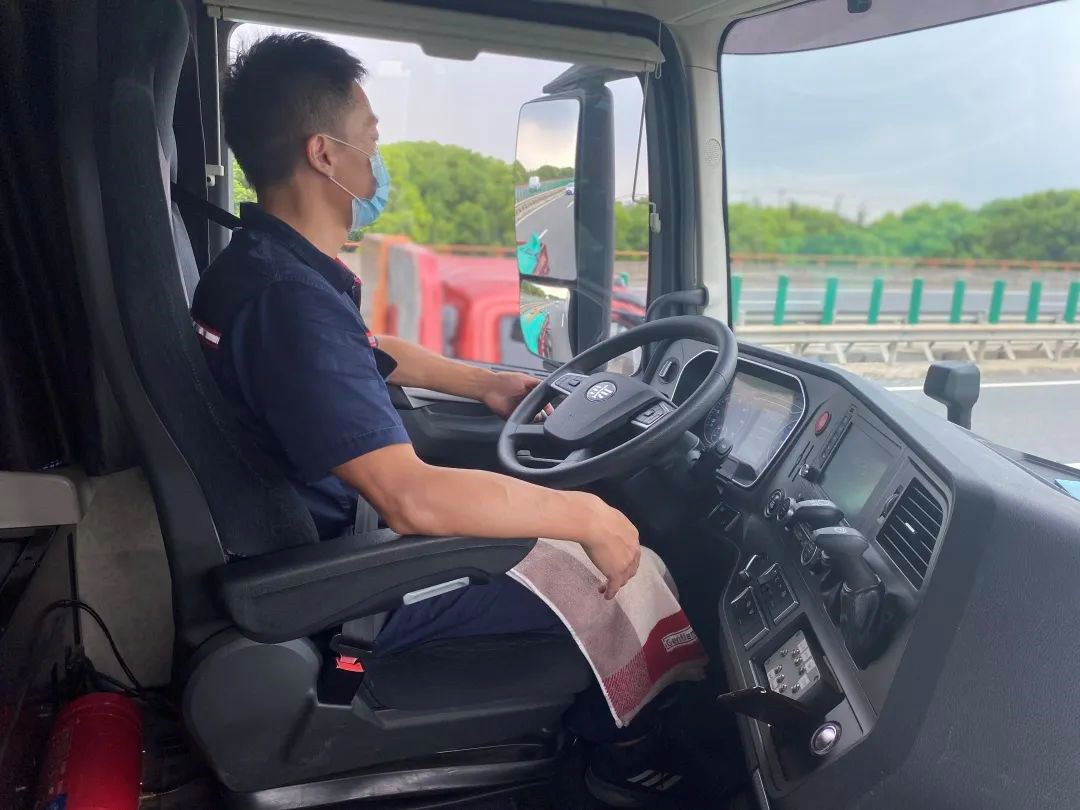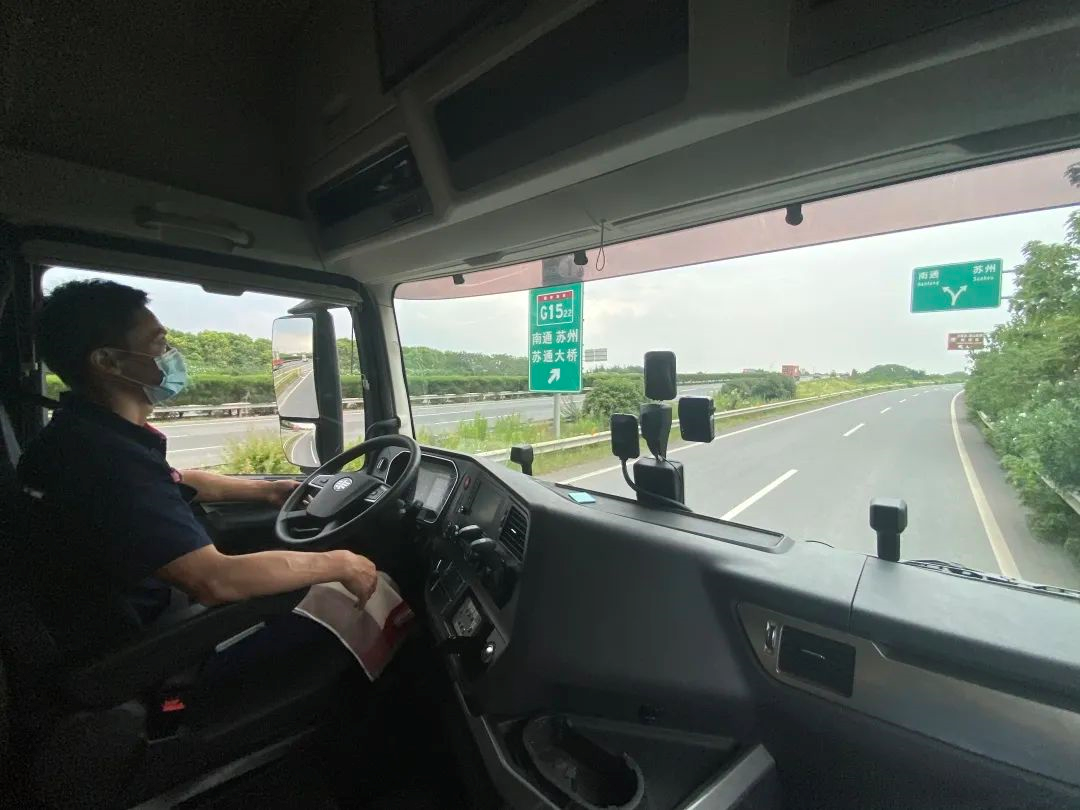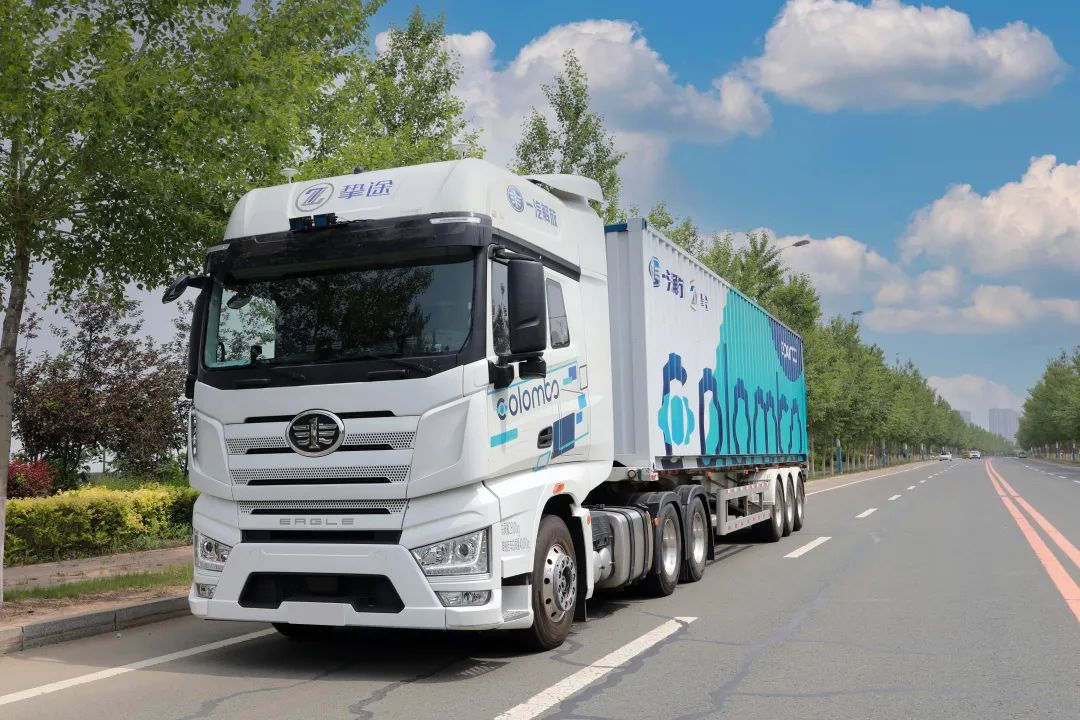Autonomous driving national team enters the field
Zhijutu Technology, an autonomous driving startup in the commercial vehicle sector, has completed more than 100 million yuan in financing, according to exclusive information obtained by Carcaijing(ID: carcaijing). It is the first financing since its establishment in 2019.
This round of financing was led by the national team, including investment institutions such as China CITIC Group Investment Co., Ltd., China Science and Technology Development Institute, and Gome Capital. The specific amount of financing and post-investment valuation were not disclosed.
“All investors introduced new social capital, including financial investors and industrial investment entities,” said Du Yiguang, CEO of Zhijutu Technology, to Carcaijing.
Zhijutu Technology, an autonomous driving company established by faw Jiefang, a leading commercial vehicle company, has a natural advantage in quickly applying technology to products. In July of this year, the first J7 L3 super truck produced by the two sides was put into small-scale production, and Zhijutu Technology also became the first Chinese enterprise to deliver a level 3 autonomous driving system product. It is expected to sell 300 units this year.
Hu Hanjie, Assistant General Manager of FAW Group Corporation, Chairman of FAW Jiefang, and Secretary of the Party Committee, told Carcaijing that the advantage of automakers in autonomous driving is to have a landing, to follow their own technological path, to do technology well, and to really achieve a landing on the vehicle. At the same time, Zhijutu’s independence should also be maintained, and the company should be well-listed to achieve structural optimization through the capital market, meeting the requirements for independence.
“The investors are not polite,” said Du Yiguang to Carcaijing.
Zhijutu Technology was established in August 2019, and is the first technology company within the FAW Jiefang Group and the first autonomous driving company initiated by an automaker.
According to Du Yiguang, the company has planned to go public in Hong Kong within five years since its formation, following the path of the capital market.In the past, as a state-owned enterprise under the system, we (FAW Jiefang) were originally state-funded. Later, when the automotive industry became profitable, we rarely thought about where the money came from. But since joining this company, I have devoted a lot of energy and time to financing. Originally, I thought that having a state-owned enterprise background was quite impressive, but capital only cares about whether you have future value or not, and we have been educated by the market,” said Du Yiguang, who was born in FAW Jiefang and transferred to ZhiTu in 2019, in an interview with “Chuxing Yike” (ID: carcaijing).
In Du Yiguang’s view, compared with other self-driving startups, ZhiTu has three advantages. First, FAW Jiefang, a head enterprise of commercial vehicles, provides strong background support. Second, ZhiTu is developing an integrated, front-loaded embedded self-driving system with original equipment manufacturers. Third, ZhiTu has a good understanding of the self-driving scenarios.
“Xiaoma Zhixing, IMa Technology, and many third-party companies all use the J7’s line-controlled chassis made by Jiefang for commercial vehicle self-driving, and we have already provided more than 300 units to the industry this year. Because our line-controlled chassis is the best and the data is open, especially when third-party companies do not have their own vehicles, they will use Jiefang’s vehicles, just like Lincoln for self-driving.” Hu Hanjie told “Chuxing Yike” (ID: carcaijing), by opening up Jiefang’s vehicles to the industry for use, the company can continuously discover problems on the vehicle end and help improve its self-driving capabilities.
However, having a state-owned enterprise background can sometimes be a restraint when attracting external investment.
“An investor asked me a question and said that I came from the system, I don’t understand technology, and I have been a leader in a state-owned enterprise. How can I lead this technology company?” Du Yiguang lamented to “Chuxing Yike” (ID: carcaijing). “I have met many investors. Investors ask a lot of questions and they are not polite. There is no discreet way of talking. Some investors just come straight to the point.”
Currently, ZhiTu has established two core business lines: intelligent software development and intelligent logistics operations. In July of this year, the L3 system began supplying original equipment manufacturers, marking the first line’s landing.
In addition to this, ZhiTu has also completed commercial landings in the park cleaning and port unmanned scenarios respectively in the Suzhou High-Speed Rail New City and the Rizhao Port, and is continuing to promote unmanned driving solutions in multiple scenarios such as trunk lines, ports, mines, and parks.
 FAW Jiefang General Manager and Deputy Secretary of the Party Committee Wu Bilei revealed to Carcaijing (ID: carcaijing) that “there are two L4-level sanitation trucks in Xiangcheng District, Suzhou, that are commercially operated, with a total mileage of more than 60,000 kilometers. Currently, there are safety officers inside, and after one year of training, the safety officers will be considered for cancellation, so that the value of intelligent driving technology can be fully realized. At the same time, bulk containers at the port have also been put into operation, with a cumulative mileage of 150,000 kilometers and over 20,000 containers loaded and unloaded.”
FAW Jiefang General Manager and Deputy Secretary of the Party Committee Wu Bilei revealed to Carcaijing (ID: carcaijing) that “there are two L4-level sanitation trucks in Xiangcheng District, Suzhou, that are commercially operated, with a total mileage of more than 60,000 kilometers. Currently, there are safety officers inside, and after one year of training, the safety officers will be considered for cancellation, so that the value of intelligent driving technology can be fully realized. At the same time, bulk containers at the port have also been put into operation, with a cumulative mileage of 150,000 kilometers and over 20,000 containers loaded and unloaded.”
Wu Bilei introduced that as of the end of September 2021, nearly one million kilometers of road testing have been completed on highways, including millions of kilometers in high-temperature, high-altitude, high-cold, mountainous, and simulation testing.
L3 Has Been Implemented, with Expected Sales of 300 in 2021
On July 21, 2021, the world’s first front-loading L3 level autonomous driving heavy truck, the J7 L3 super truck, co-developed by Zhitu Technology and FAW Jiefang, was produced in small batches by FAW Jiefang.

Wu Bilei told Carcaijing (ID: carcaijing) that in terms of autonomous driving technology, considering that the driving chassis of a truck tends to fluctuate greatly, two heterogeneous controllers with redundancy were designed for the core control system of the vehicle. In terms of products, the development of highway operations, sanitation operations, and port operations has been completed, and a large amount of data has been accumulated during the development process, enabling rapid push and continuous iteration.
Recently, Carcaijing (ID: carcaijing) experienced the J7 L3 super truck on the G15 highway in a section of Suzhou. After passing through the toll station and activating the L3 system, the test driver left the steering wheel with both hands, and the vehicle achieved full-scale autonomous driving.
This section of the road is about 13 kilometers long, covering three interchanges. During the test, it was able to maintain a stable following distance, stay in its lane, automatically change lanes, and enter and exit interchanges. During acceleration and deceleration, the reporter experienced a slight pause, which was not as smooth and continuous as an experienced driver, but the vehicle was able to drive safely throughout the entire journey and cope with sudden situations such as being cut off and overtaking.
It is difficult for ordinary drivers to distinguish between the J7 L3 super truck and a regular J7. On the one hand, it is difficult to distinguish by appearance – test vehicles have eight additional cameras, but due to the large size of the heavy truck itself, they are not particularly noticeable on the entire vehicle. On the other hand, the driving trajectory is no different from that of an ordinary driver. The truck can change lanes, enter and exit interchanges, and even overtake, and is more stable in terms of driving habits compared to human drivers.
For example, when merging from a ramp to a main road, while the test car was accelerating, it was cut off by a small car from behind. Carcaijing (ID: carcaijing) observed that the speed quickly dropped from 70 km/h to 50 km/h, giving way to other vehicles. During the process, the tester honked the horn once to remind the cars behind, which was the only time he used the steering wheel throughout the journey.
Du Yiguang revealed to Carcaijing (ID: carcaijing) that the sales target for J7 L3 Super Truck by the end of this year is 300 units, and the main users are domestic leading efficient logistics companies, such as Deppon, SF Express, ZTO Express, and JIT Express, as well as cold chain transportation companies with high requirements for timeliness.
“The advantages of autonomous driving are threefold: first, it saves fuel consumption; second, it reduces insurance premiums; and third, it increases work efficiency,” said Du Yiguang. From the perspective of the single purchase price, J7 L3 Super Truck is several tens of thousands more expensive than ordinary J7. However, looking at the average four-year operating cycle of long-haul trucks, Zhejiang JiTu hopes that the cost of autonomous driving in the first two years can be offset, and users can experience the direct contribution of autonomous driving in the following two years.
Wu Bilei told Carcaijing (ID: carcaijing) that it will take at least two to three years for L3 heavy-duty trucks to be truly available for large-scale operations, given that laws and regulations and relevant standards are in place.
Zhejiang JiTu Technology stated that this round of financing will be used to accelerate the iteration and improvement of the team’s L3-L5 autonomous driving AI algorithms, consolidate the advantages of the full-stack self-developed advanced autonomous driving algorithms, and continue to provide leading autonomous driving integrated solutions for the logistics industry, striving to achieve the world’s first mass production of L4-level products.
It is generally expected in the industry that 2024 will be the first year for the landing of L4 autonomous driving heavy-duty trucks.

This article is a translation by ChatGPT of a Chinese report from 42HOW. If you have any questions about it, please email bd@42how.com.
